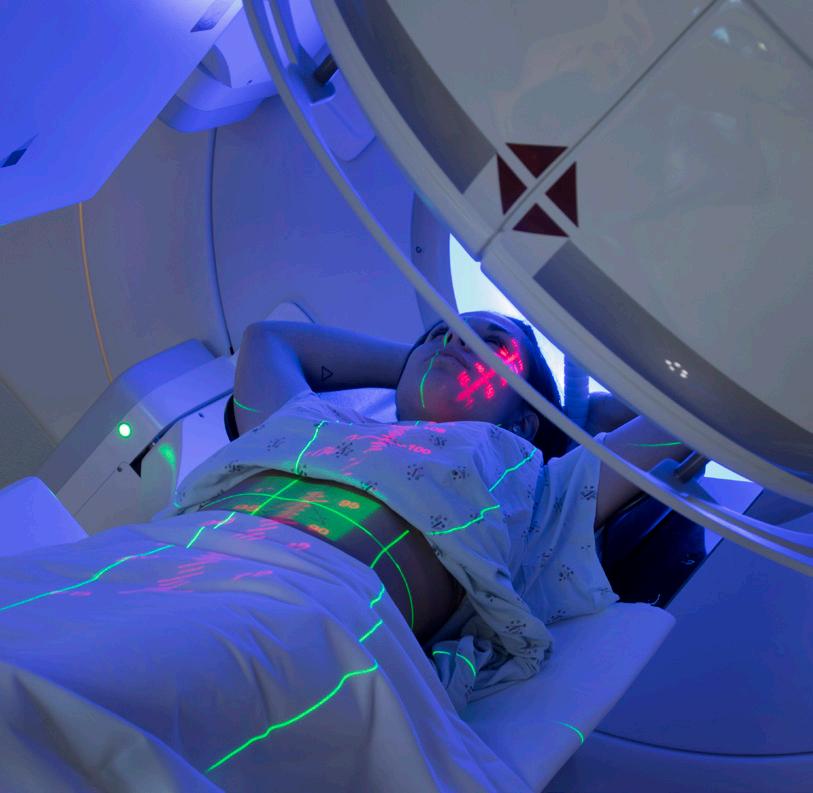
SCAN TO VIEW THE CURRICULUM FOR THIS MAJOR


SCAN TO VIEW THE CURRICULUM FOR THIS MAJOR
Radiation therapy is an allied health profession which employs radiation in the treatment of disease, especially cancer. The Bachelor of Science in Radiation Therapy is a four-year, “2+2” program. Students first complete two years of liberal and pre-professional science education courses at the University of St. Francis, followed by two years of professional coursework and clinical education at an affiliated hospital or cancer center.
The curriculum is designed to provide for balanced didactic and clinical components in order to produce students with a well-rounded education in radiation therapy. Successful completion of the professional education component of the program, makes the graduate eligible to take the national certification examination of the American Registry of Radiologic Technologists (AART).
The job outlook for radiation therapists continues to be promising. According to the U.S. Bureau of Labor Statistics, employment in the field is projected to rise 6 percent between 2021 and 20231. As the population of our country ages, the need for radiation therapists will likely increase. The median annual wage for a radiation therapist was $82,790 in 2021.
I had my heart set on the Radiation Therapy program since I set foot on campus. When I was accepted it was a dream come true. The program has been extremely rewarding. I’ve been blessed with incredible professors and clinical instructors to mentor me through this program, and prepare me for my career after college. I’m challenged every day to be my best self both in the classroom and in the clinical setting. Overall, I’m exactly where I’m supposed to be.
— Molly Gunning
Radiation therapists works with radiation oncologists and physicians in planning and delivering the course of treatment for each patient. Radiation therapists are responsible for implementing the daily administration of prescribed doses of radiation for treatment, as well as performing calculations for the correct patient dosage.
Because radiation therapy procedures are planned in advance, most radiation therapists work a day-shift schedule, and there is rarely the need to work night shifts, on weekends or on holidays. Employment opportunities for radiation therapists are in hospitals, private practice offices, outpatient centers, and comprehensive cancer centers.
The mission of the Radiation Therapy program at the University of St. Francis is to provide academic, clinical and professional education of exceptional value to students, and to graduate radiation therapy majors with desired, required, entry-level employment skills.
As part of the Radiation Therapy program, students will complete four radiotherapy clinical experiences over the course of four semesters. During this period, students will gain hands-on experience in the field at an affiliated clinical site, working with patients and professionals. Additionally, dedicated faculty with years of professional experience guide students throughout the program, helping students become top qualified radiation therapists.
The University of St. Francis is accredited by the Higher Learning Commission (hlcommission.org), a regional accreditation agency recognized by the U.S. Department of Education, and is authorized to operate as a post-secondary institution by the Illinois Board of Higher Education (ibhe.org). The Radiation Therapy program is accredited by the Joint Review Committee on Education in Radiologic Technology (JRCERT), 20 N. Wacker Drive, Suite 2850, Chicago, IL 60606-3182; 312-704-5300; mail@jrcert.org; jrcert.org.